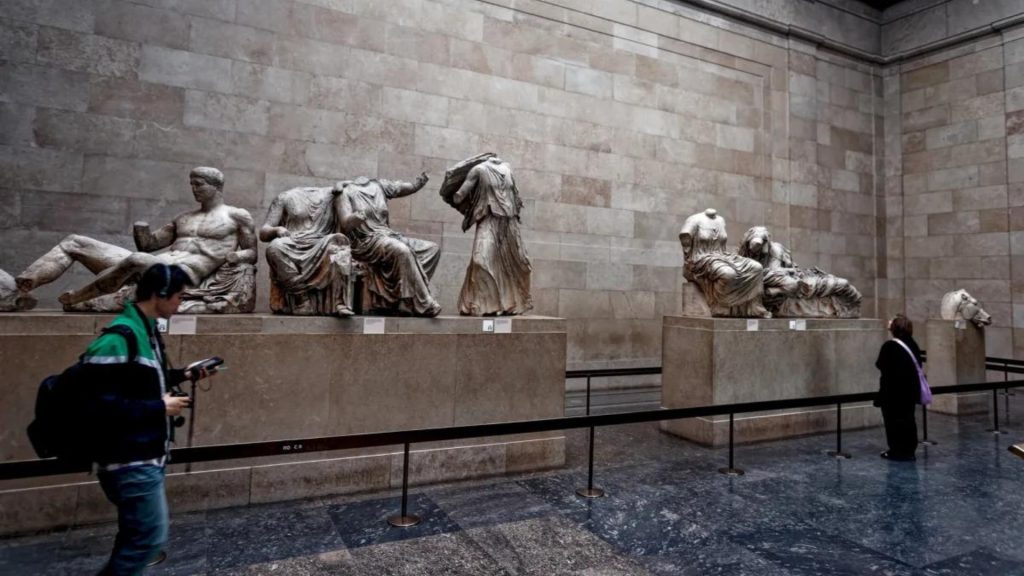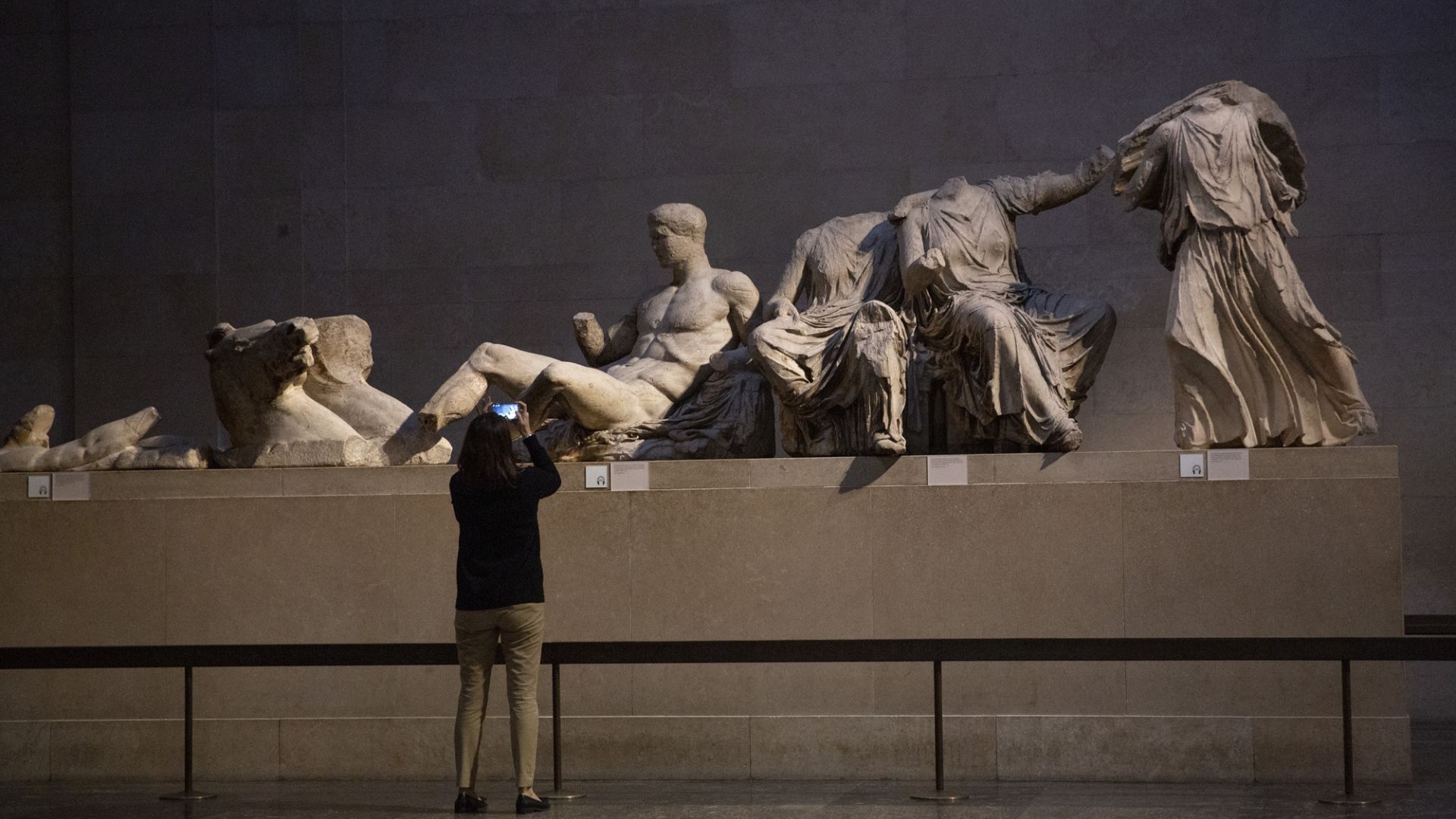By James Tselios
Will diplomatic efforts ultimately prove successful in retrieving the Parthenon Marbles held by the British Museum?
Greece reportedly first requested that Britain return the stolen Marbles in 1833 and has repeatedly sought their return since. Current British Prime Minister Rishi Sunak was recently due to meet with Greek Prime Minister Kyriakos Mitsotakis, but cancelled a day after Mitsotakis told BBC that the Marbles should be returned. Talks about a deal – a potential loan or exchange – reportedly continue with the British Museum’s chair.
Successive British governments have rejected calls to negotiate on the Marbles, instead noting that this is a matter for the British Museum’s trustees. This ignores that the British Parliament would first have to amend the UK’s British Museum Act 1963 (which prevents the museum’s trustees from disposing the Marbles) to either exclude them or give the trustees a general discretion to dispose of property, so that the Marbles could permanently return.
The refusal to debate the issue reflects a dread about the precedent it might set, as reflected in former PM David Cameron’s following comment when discussing the return of the Koh-i-Noor diamond to India: ‘If you say yes to one, you suddenly find that the British Museum would be empty.’

Former British PM Boris Johnson loved the Greek classics (he can impressively recite, in Homeric Greek, large extracts from The Iliad). However, Johnson maintained that the Marbles are rightfully stored and displayed in the British Museum. The bust of Pericles which reportedly sat on his Downing Street desk failed to sway him.
It begs the question: would the Greek government consider taking legal action for their permanent return?
In 2011, the Greek government explored the legal route. It asked Geoffrey Robertson KC whether international law might help to retrieve the Marbles. This was on the basis that in 2007, Robertson successfully represented the Tasmanian Aboriginal Centre in its case against Britain’s Natural History Museum to stop it testing the skeletal remains of Tasmanian Aboriginal ancestors and have them repatriated.
Together with the late Professor Norman Palmer, an expert on cultural property, and international law barrister Amal Clooney, the three advised that Greece would stand a reasonable prospect of success if it were to engage the United Kingdom in an inter-state action under the European Convention of Human Rights. Further, that the European Court of Human Rights could, in finding a breach of the Convention, direct the UK to amend the 1963 Act to permit relinquishment.
In 2015, however, the Greek government decided against taking legal action. Robertson concluded that the ‘gumptionless Greeks of the Tsipras government would never get back their ancient Gods.’
The campaign for the Marbles feeds into a broader question: how should we define the circumstances or criteria by which states should be entitled to reclaim ownership of the cultural objects which constitute the keys to their history? There is a judicious conversation to be had, not one to be reduced to all-or-nothing assertions that museums would be cleared of all artefacts. An international court’s decision could set out relevant circumstances and criteria, establishing an important and universal precedent.
For now, however, the Mitsotakis government appears committed to persisting with negotiations. Let’s see what 2024 brings.
*James Tselios is a lawyer practising in public law who has written about the Parthenon Marbles issue for Neos Kosmos and the Alternative Law Journal.

